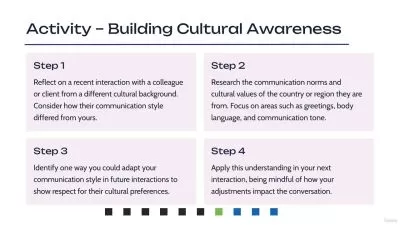About LeadershipLearn More
Leadership is a process in which management tries to facilitate the performance of other tasks in the fulfillment of organizational goals by creating motivation and effective communication and to encourage employees to perform their duties with desire and interest. Therefore, leadership is a part of management and this task, like planning, organizing and controlling, is also a manager's task.
Sort by:
Sorting
The newest
Most visited
Course time
Subtitle
Frequently asked questions about Leadership
Leadership is the ability to influence, motivate, and guide followers and others you are overseeing. In the context of business, being a leader requires you to instruct, guide, and direct other team members placed under your supervision. It's a company leader's responsibility to align team members with the organization's goals and motivate them to perform necessary tasks to realize those goals. Typically, the closer a leadership role is to the workers, the narrower and more specific the scope of their supervision. Someone in a chief officer position takes a broad view of an organization's vision with a more generalized approach. Further down the line, a worker's direct supervisor focuses more on each individual's day-to-day responsibilities and tasks contributing to higher leadership's vision.
Confidence is an essential skill for leaders. People tend to follow someone sure about what they're doing. Reliability is vital to being a good leader. People tend to follow others they can count on to be honest and do what they say they're going to do, which builds trust, and shows integrity. Active listening is another skill vital to leadership. Followers respond better when they know their leader considers what they have to say, showing regard for the individual. Empathy — like listening — shows respect and builds rapport. The skill most important to being a good leader is communication. Leaders of any type have to be able to convey their vision and impart their instruction effectively. The ability to communicate significantly enhances the impact of all other skills. Udemy offers a wide range of courses to help improve your capabilities for whatever leadership role you're seeking to fill.
Several jobs require leadership skills, but just about any job benefits from good leadership. The ability to effectively lead is essential to positions in management or supervision at any business. Company leaders — like managers, supervisors, and chief officers — are responsible for their business's productivity, and it's their duty to get members of their organization engaged and keep them motivated. Several jobs rely on leadership abilities. For example, airline pilots are responsible for keeping passengers and crew at ease. Communication and empathy make that part of the job much easier. Judges and lawyers rely on leadership skills to inform courtrooms and advise jurors through confident communication. Any job that requires you to instruct, inform, guide, or communicate confidently will benefit from acquiring and developing good leadership skills.




















